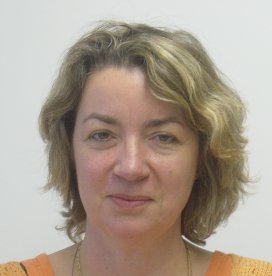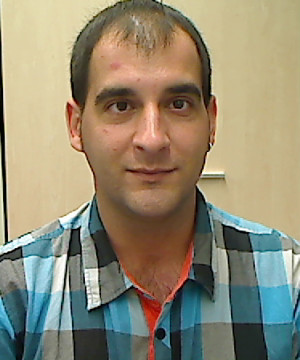CREST
Characterization of exposure to radiofrequency (RF) induced by new uses and technologies of mobile communication systems

- Duration
- 2013-2017
- Coordinator
- Elisabeth Cardis (ISGlobal)
- Funded by
- Anses - Agence nationale de sécurité sanitaire de l’alimentation, de l’environnement et du travail
In the 1990’s, mobile phones were mainly used close to the head for voice calls. Much work has gone into characterising this kind of exposure. New technologies and devices, however, have lead to a rapid evaluation of uses, with phones, tablets, portable computers and other devices being used to surf the internet, download data and send text and video messages. At the same time, new types of networks (Wifi, LTE) and network configurations (Femtocell) are rapidly being developed, leading to different RF exposure distributions in the population.
We have little information, currently, concerning the patterns of use of mobile communication devices and technologies in the population or their impact on personal RF exposures. This is an important limitation for exposure assessment in epidemiological studies and for the assessment of the potential health impact of RF in the general population.
The main objective of CREST, therefore, is to characterize RF exposure from new mobile sources (including smartphones, tablets, laptops) in the general population as a function of technology and new uses related to these technologies.
In order to achieve this objective, we have several operative objectives:
- The conduct of a general population survey (based on a questionnaire and an APP on smartphones - XMobiSense) to characterise typical uses (surfing, voice calls, data download, text messages, etc.) in different contexts (home, work, school, transport, etc.) and positions (device close to the head, on the lap, etc.);
- The evaluation of power emitted by different mobile sources, based on existing measurements and tools (mobile test system (TEMS)), for different uses (voice call – on standard networks or VoIP), close to the head or using loud-speaker or hands-free kits; data use (3G, LTE, Wifi, Femto cells);
- The evaluation of exposure related to different uses and positions, based on a compilation of existing dosimetric data and additional measurements for specific configurations. Specific dosimetric studies will be conducted if necessary;
- The development of RF exposure matrices for different devices, technologies and uses based on data on typical uses and related exposure derived within the project. These matrices will be an important asset for exposure estimation in the general population and in epidemiological studies.
Work in this project will be carried out by two complementary teams (epidemiologists and engineers) who will collaborate to achieve the project’s objectives. The plan of work will be developed jointly and specific activities conducted in parallel.
Our Team
Principal Investigator (PI)
-
 Elisabet Cardis Research Professor, Head of the Radiation Group
Elisabet Cardis Research Professor, Head of the Radiation Group
ISGlobal Team
-
 Alex Albert Cabrera Database Manager
Alex Albert Cabrera Database Manager -
Laura Argenté Buron
-
 PATRICIA DE LLOBET Research technician
PATRICIA DE LLOBET Research technician
Other projects
See Past ProjectsMCC-Spain
Population based multicasecontrol study on common tumours in Spain
INMA - Environment and Childhood Project
HELIX
Novel tools for integrating early-life environmental exposures and child health across Europe
EGG/EAGLE
Early Genetics Growth/Early Genetics and Lifecourse Epidemiology
PACE
Pregnancy and Childhood Epigenetics
LIFECYCLE
Early-life stressors and LifeCycle health
OMEGA-NET
Network on the Coordination and Harmonisation of European Occupational Cohorts
BiSC (Barcelona Life Study Cohort)
HARMONIC
Health effects of cArdiac fluoRoscopy and mOdern radIotherapy in paediatriCs
Mobilise-D
Connecting digital mobility assessment to clinical outcomes for regulatory and clinical endorsement
EARLY-ADAPT
Signs of Early Adaptation to Climate Change
COVICAT
Cohorte Covid-19 en Cataluña
ATHLETE
Advancing Tools for Human Early Lifecourse Exposome Research and Translation
CONTENT
Cohort of COVID-19 in Spain: social dynamics, mental health and inequalities
EUCAN-Connect
A federated FAIR platform enabling large-scale analysis of high-value cohort data connecting Europe and Canada in personalized health
OBERON
An integrative strategy of testing systems for identification of EDs related to metabolic disorders
EXPANSE
EXposome Powered tools for healthy living in urbAN SEttings
AURORA 2021
Actionable eUropean ROadmap for early-life health Risk Assessment of micro- and nanoplastics
ONES
Fine Particle Matter, Fetal Growth, and Neurodevelopment: Examining Critical Windows of Susceptibility
AIR-NB
Pre-natal exposure to urban AIR pollution and pre- and post-Natal Brain development
El impacto de la exposición al metaboloma de esteroides materno-fetales en el crecimiento infantil y los resultados neurológicos (IGRO)
Project Code: PI21/01269
NutinBrain
The role of seafood and nut consumption on human neurodevelopment from pregnancy to adolescence
ALTER - Contaminación del aire, microbiota intestinal y neurodesarrollo en los primeros 24 meses de vida
Project Code: PI21/01278
Alimentación S2: por una dieta saludable y sostenible
Estudio sobre la exposición a nano y microplásticos a través del agua de consumo de Barcelona
¿Es mejor consumir el agua de grifo si queremos reducir la exposición a nano/micropláticos?
UrbanKids
Urban and social environment and childhood obesity – a natural moving2health experiment
Urban Health Citizen Lab
Urban planning, environment and health
Characterizing Oral Exposure to Nanoplastics and Microplastics
Characterization of Oral NMP Exposure
iGenCO
In-Depth Genomics and Cross-Omics Analysis for Undiagnosed Rare Diseases on a User-Friendly Collaborative Platform
5G expOsure, causaL effects, and rIsk perception through citizen engAgemenT
GOLIAT
CityExposomeCat
An Exposome Approach to Urban Health: Individualized Environmental Exposure Assessment in an Adults Population Cohort Study (GCAT)
TwinAir
Digital Twins Enabled Indoor Air Quality Management for Healthy Living
Subclinical Infections in Children and Long Term Health Effects
Infection acquisition in early life and health outcomes in childhood - MARATO TV3
UBDPOLICY
The Urban Burden of Disease Estimation for POLICY Making
Exposición prenatal a sustancias poli y perfluoradas en agua de consumo y neurodesarrollo en el inicio de la vida
Project Code: PI20/00829
Base genética materna y fetal de la función placentaria
Project Code: PI20/01116
TOLIFE
Combining Artificial Intelligence and smart sensing TOward better management and improved quality of LIFE in chronic obstructive pulmonary disease
BWater
Drinking Water in Barcelona: Sustainability and Health Impact Assessment
CUPID
intoDBP
Innovative Tools to Control Organic Matter and Disinfection Byproducts in Drinking Water
FINDOOR
FTIR spectroscopy for real-time detection of bacterial outbreaks and the rapid identification of pathogenic serotypes, relapsing infections and antibiotic resistance
OccRF-Health
Occupational exposure to radiofrequency electromagnetic fields: From exposure assessment to study of health in workers and their offspring
EPHOR
Exposome Project for Health and Occupational Research
EXPONIT
Analysing and studying how night shift work affects workers' circadian rhythms and health
IHEN
International Human Exposome Network
El microbioma intestinal y la disrupción circadiana
Un estudio epidemiológico molecular sobre enfermedades cardiometabólicas y salud mental
B-Triage
Una prueba en el punto de atención para la estratificación del riesgo de los pacientes febriles basada en los niveles de sTREM-1
e-QuoL
e-health tools to promote Equality in Quality of Life for childhood to young adulthood cancer patients, survivors and their families
AM-MENTAL
What happens with your mental health when your supervisor is an algorithm?




